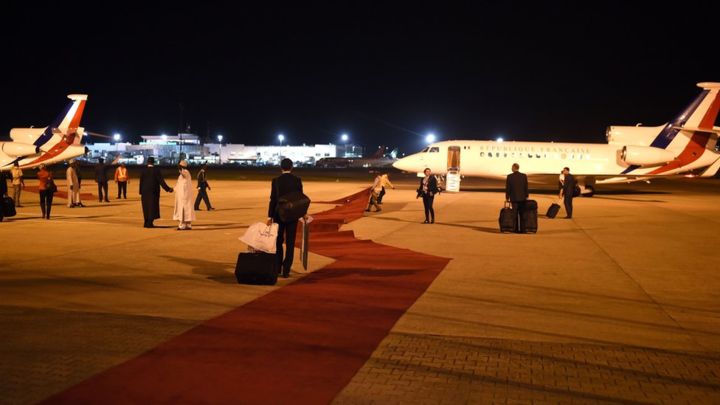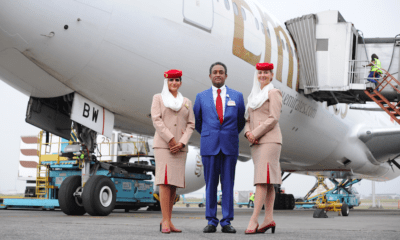- Don’t Downgrade Enugu International Airport, Senate Warns FG
The Senate on Thursday urged the Federal Government not to downgrade the Akanu Ibiam International Airport, Enugu, as earlier threatened by the immediate past minister of aviation, Hadi Sirika.
The upper chamber also urged the Federal Government to rehabilitate the runway of the airport for the safety of passengers and aircrafts in conformity with international aviation standards.
The Senate passed the resolutions following a motion sponsored by Senator Victor Umeh, titled ‘The threat to downgrade the Akanu Ibiam International Airport.’
The red chamber further asked the Federal Government to take steps to complete the new terminal building of the Enugu International Airport and put it to use by foreign and local airlines.
It also urged the Federal Ministry of Aviation and its agencies to develop a water source from the nearby Ekulu River for the use of the airport.
The Senate expressed appreciation to the Enugu State Government for swiftly demolishing and ordering the relocation of the Orie Emene Market, shutting down the nearby abattoir and ordering the immediate removal of the broadcasting mast and other illegal structures close to the airport.
It urged the Federal Ministry of Aviation to return all the generators allegedly removed from the Akanu Ibiam International Airport and taken to the airport in Port Harcourt, on the orders of the immediate past Minister of Transportation, Mr Rotimi Amaechi.
Umeh had observed that Sirika had threatened to downgrade the airport because of what he considered as imminent dangers posed to air travellers by the presence of a nearby market.
He also said that Sirika had expressed concerns over the presence of a state radio mast on the flight path of airlines that threatened the safety of incoming aircraft.
He quoted Sirika as also saying that the presence of an abattoir, which attracted large birds and exposed airplanes to the bird strikes; the locating of a free trade zone and the bad state of the runway, necessitated the threat to downgrade the airport.
He appreciated the concerns of the former minister over the safety of passengers and airplanes using the airport.
He also noted that the airport currently serves travellers from Enugu, Kogi, Anambra, Ebonyi, Benue, cross River and other adjoining states.
In their various contributions, all the senators who spoke, supported the motion, spoke against the proposed downgrading of the airport
Senator Barnabas Gemade noted that the Enugu International Airport was critical to the economic lives of not only the South-East but also neighbouring Benue and other states
He said, “Downgrading the airport is retrogressive to the economic growth of the nation. No part of the country should be relegated to the background.”
The Deputy President of the Senate, Ike Ekweremadu, who presided over the plenary, stressed the need for relevant authorities in the aviation ministry to speed up the upgrading of facilities at the airport.

 Forex2 weeks ago
Forex2 weeks ago


 Naira2 weeks ago
Naira2 weeks ago
 Billionaire Watch2 weeks ago
Billionaire Watch2 weeks ago




 Naira2 weeks ago
Naira2 weeks ago




 Naira2 weeks ago
Naira2 weeks ago




 Naira4 weeks ago
Naira4 weeks ago


 Naira6 days ago
Naira6 days ago
 Banking Sector4 weeks ago
Banking Sector4 weeks ago




















